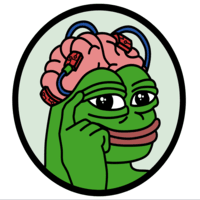What is Karbo?
The name "Karbo" is derived from Ukrainian word "karbovanets", that comes from an ancient way of recording settlements or debts by marking wooden stick called "tally stick" or "tally" with a system of notches that was very popular in the Mediaeval Europe from Antiquity up to the first decades of XX century. The stick would be split in half, down its length from one end to the other. The debtor would retain half, called the "foil". The creditor would retain the other half, called the "stock". Because wooden stick has natural and distinctive irregularities, the two halves would match only each other providing simple and effective protection against forgery. The way medieval tally sticks system worked resembles how blockchain works. Hence comes the name "karbovanets" and its shortened version "Karbo".
The "karbovanets" has been a distinct unit of currency in Ukraine during three separate periods in its history. Nowadays it is obsolete and replaced by Ukrainian Hryvnia.
"Karbovanets" therefore is a very well-known word, with very strong associations with "money" not only in Ukraine but also in Russia and other neighboring countries. It sounds familiar to people, which makes it more easy to adopt.
It was resurrected in the digital form of cryptocurrency as people’s unofficial, independent exchange medium.
Karbo is based on principles of the Austrian school of economics which emphasizes the spontaneous organizing power of the price mechanism and holds that the complexity of subjective human choices makes mathematical modeling of the evolving market practically impossible. Its scholars eschew what they consider "naïve" and pointless mathematical modeling of the economy, considering much of mainstream economics a form of economic charlatanism. Its proponents tend to emphasize the organic, subjective and evolving nature of market dynamics, advocating the strong protection of private property rights and the strict enforcement of voluntary contractual agreements between economic agents as the best way of facilitating economic exchange, and generally advocate a laissez-faire approach to the economy, arguing that the smallest imposition of coercive force (especially government-imposed force) on commercial transactions is the most effective way to secure long-run economic stability and well-being.
In particular, they voice serious concerns about the distorting and damaging effects of government involvement in commerce, arguing that few government regulations in this area are necessary or desirable and often trigger a "ratchet effect" as problems associated with existing regulations are often blamed on the free market, thereby justifying further damaging, coercive incursions into the market. They are particularly critical of long-standing governmental incursions into the area of private money production, advocating instead the immediate abolition of all coercive legal tender laws and the return to full reserve - or free - banking, where the financial system is decentralized and not dominated or controlled by coercive monopoly government or a monopoly central bank.
One of the most known scholars, Noble Prize laureate, economist and philosopher Friedrich Hayek it it's book The Denationalization of Money states that instead of a national government issuing a specific currency, use of which is imposed on all members of its economy by force in the form of legal tender laws, private businesses should be allowed to issue their own forms of money, deciding how to do so on their own. Hayek advocates a system of private currency in which financial institutions create currencies that compete for acceptance.
Karbo is proposed as one of such free exchange medium – egalitarian, decentralized system with enhanced privacy, where value of its units is based solely on supply and demand in the market, emission depends on constant mathematical algorithm, where everyone can participate in emissions of karbos, receiving them as a reward for the provided computing resources of their regular PC to support the network. For mining expensive specialized equipment (ASIC) is not required.


























